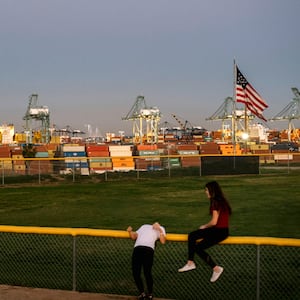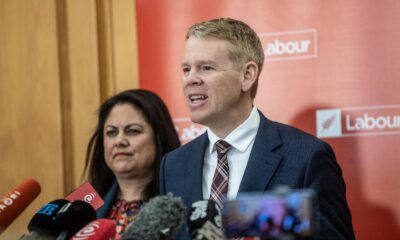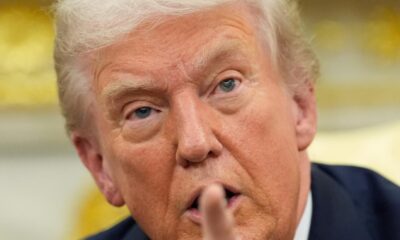Business
Trump’s Tariffs: A Double-Edged Sword for Inequality

The rise of tariffs under the administration of President Donald Trump has sparked a significant debate on their impact on economic inequality in the United States. With tariffs now at their highest levels in nearly a century, questions arise about whether these measures will help reduce the wealth gap or exacerbate it further. The controversy reflects a broader shift in attitudes towards globalisation and free trade, which had previously dominated economic policy for decades.
During the past thirty years, globalisation allowed goods and capital to flow freely across borders, generating extensive wealth and fostering technological advancements. This era, however, also coincided with a sharp increase in inequality, particularly in wealthier nations. In the United States, the disparity between the rich and the rest is among the highest globally, with many working-class Americans—especially those without university degrees—feeling the brunt of these economic changes.
The introduction of tariffs by the Trump administration marks a departure from the long-standing belief in free trade as a vehicle for economic growth. Advocates for free trade argue that such policies promote competition, lower prices for consumers, and encourage innovation. In contrast, opponents suggest that tariffs may provide temporary relief for certain industries but ultimately harm the broader economy by increasing costs and limiting choices for consumers.
Critics of the tariff strategy contend that the working class, which has already faced significant challenges, may not benefit as intended. Data shows that many of those most affected by job losses and wage stagnation are individuals with limited educational backgrounds. As tariffs raise the cost of imported goods, these individuals may find themselves further marginalized, facing higher prices without corresponding wage increases.
The economic landscape is complicated by the interconnectedness of global markets. Tariffs can lead to retaliatory measures from other countries, potentially exacerbating trade tensions. For instance, industries reliant on imported materials may see production costs rise, impacting their competitive edge. This could lead to higher prices for consumers and, ultimately, reduced demand, further straining the job market.
While some sectors may experience short-term gains, such as manufacturing, the broader implications of tariffs remain contentious. The question that looms large is whether the tariffs will lead to a more equitable economy or deepen the existing divides. As the debate continues, it will be essential for policymakers to consider the long-term effects of these economic strategies on all segments of society.
With the economic landscape evolving rapidly, the coming years will be crucial in determining the effectiveness of Trump’s tariff policies. The intersection of globalisation, inequality, and trade will remain a pivotal issue for American workers and the economy as a whole.
-

 Sports2 months ago
Sports2 months agoNetball New Zealand Stands Down Dame Noeline Taurua for Series
-

 Entertainment2 months ago
Entertainment2 months agoTributes Pour In for Lachlan Rofe, Reality Star, Dead at 47
-

 Entertainment4 weeks ago
Entertainment4 weeks agoNew ‘Maverick’ Chaser Joins Beat the Chasers Season Finale
-

 Sports7 days ago
Sports7 days agoEli Katoa Rushed to Hospital After Sideline Incident During Match
-

 Sports2 months ago
Sports2 months agoSilver Ferns Legend Laura Langman Criticizes Team’s Attitude
-

 Politics1 month ago
Politics1 month agoNetball NZ Calls for Respect Amid Dame Taurua’s Standoff
-

 Entertainment2 months ago
Entertainment2 months agoKhloe Kardashian Embraces Innovative Stem Cell Therapy in Mexico
-

 Sports4 days ago
Sports4 days agoJamie Melham Triumphs Over Husband Ben in Melbourne Cup Victory
-

 World3 months ago
World3 months agoPolice Arrest Multiple Individuals During Funeral for Zain Taikato-Fox
-

 Sports3 months ago
Sports3 months agoGaël Monfils Set to Defend ASB Classic Title in January 2026
-

 Entertainment1 month ago
Entertainment1 month agoTyson Fury’s Daughter Venezuela Gets Engaged at Birthday Bash
-

 Sports1 month ago
Sports1 month agoHeather McMahan Steps Down as Ryder Cup Host After Controversy





















